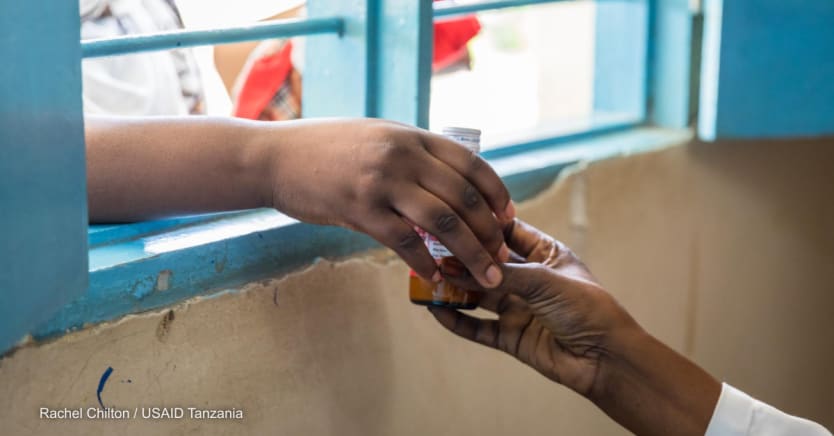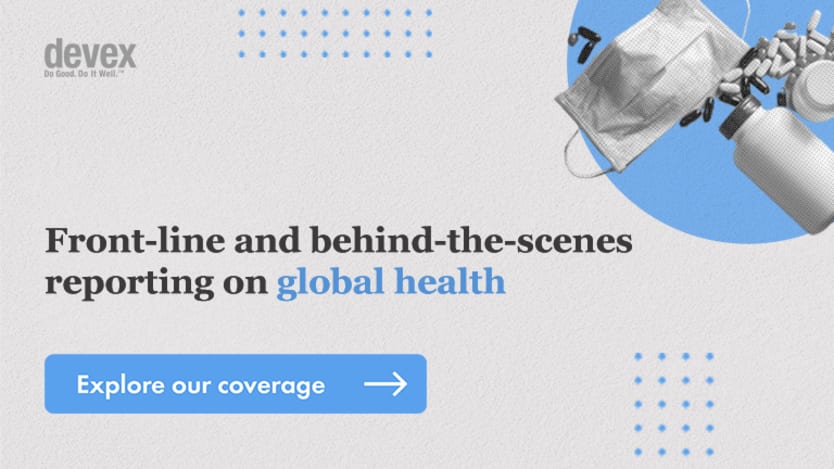
The White House recently released the Biden administration’s budget, which provides nearly $1 billion in foreign assistance for global health security programs and for bringing the COVID-19 pandemic to an end. A substantial increase above previous levels, the additional funding to address global health challenges is a welcome step in the right direction.
Global health security aims to prevent, detect, and respond to infectious disease threats. In practice, this is limited to specific activities, including strengthening surveillance systems and improving risk communication. In March, the House Foreign Affairs Committee passed the Global Health Security Act of 2021 to help complement these capacities and establish a multilateral fund for pandemic preparedness.
However, global health security alone simply isn’t enough. The experience with COVID-19 suggests that hyper-focusing on infectious disease control often misses the bigger picture: health systems worldwide are chronically underfunded, disjointed, and inequitable.
Throughout the pandemic, over 115,000 health workers worldwide died from often poor working conditions, and the lack of workforce capacity resulted in thousands of vaccine doses being destroyed in South Sudan and Malawi. Supply challenges and inaccessible health centers have fuelled new COVID-19 variants that threaten our collective progress painstakingly forged after months of grueling public health measures.
With 93% of the increased funding for global health programs focused on bolstering health security, the new U.S. budget risks being unbalanced. It misses a crucial opportunity to provide dedicated investments in health systems.
—When it comes to public health crises, global health security efforts — while essential — will fall short unless concretely tied to broader health systems strengthening initiatives.
Let’s consider what happens when, thanks to new health security investments, we detect a new virus of pandemic potential; early warning systems and new laboratories will help to track the disease.
But what happens when individuals are unable to access a health center for testing or are distrustful of health providers? What happens when governments cannot track their health workers or equip health facilities with lifesaving resources? Such issues go beyond the purview of traditional global health security.
The United States cannot afford to treat its global health investments as business as usual. The Biden administration and Congress should not repeat previous mistakes by over-relying on global health security in the wake of COVID-19 while sidelining the fundamental enabling investments needed to keep health systems functioning.
This is short-sighted. Instead, they must prioritize building the basic foundations for public health, such as reducing financial and geographic barriers to health care, supporting trusted community health workers to ensure uninterrupted essential health services, and integrating health information systems to guide decision-making.
With 93% of the increased funding for global health programs focused on bolstering health security, the new U.S. budget risks being unbalanced. It misses a crucial opportunity to provide dedicated investments in health systems that underpin pandemic preparedness as well as restore hard-won progress in other critical areas like HIV/AIDS, maternal and child health, and malaria.
Building back better means reimagining global health investments in bold new ways:
Integration
• Implement traditional infectious disease interventions alongside multisectoral, comprehensive, and proactive health services.
• Build a diverse, qualified, and protected community health workforce to maintain essential health services while overcoming vaccine hesitancy.
• Leverage universal health and social protection programs to locally distribute personal protective equipment, and support coherent risk communication.
• Align programs and indicators for global health security e.g., Global Health Security Agenda, CDC/USAID outbreak capacities, with health systems initiatives e.g., USAID Health Systems Strengthening Vision, PEPFAR/PMI health workforce capacity-building.
Financing
Sign up for Devex CheckUp
The must-read weekly newsletter for exclusive global health news and insider insights.
• Tie financing for global health security and COVID-19 response to community-based health systems programs e.g., primary health centers, trained local health workers, data systems, health supply chains.
• Incentivize domestic financing for health systems while supporting the removal of user fees at health facilities.
• Invest in pooled procurement mechanisms for essential medicines and supplies.
• Scale up nonrestrictive funding for multilateral programs e.g., ACT Accelerator, Health Systems Connector, World Health Organization, and the pandemic preparedness fund.
Equity
• Develop a clear strategy for intersectional and rights-based approaches across all global health programs, including health security.
• Ensure low-income countries can fairly access vital resources while obligating high-income countries to contribute a greater share towards health systems resilience.
• Operationalize global health investments through alignment with broader Sustainable Development Goals e.g., gender equality, climate change.
• Commit to diverse multistakeholder and multisectoral engagement at all stages, placing marginalized groups in decision-making roles e.g., women, racial minorities.
The tragic loss of life from COVID-19 is a damning indictment on the state of health systems around the world — but one that U.S. foreign assistance can play an important role in addressing. A global health budget and strategy that implements these recommendations will do far more to develop resilient health systems than the siloed health security initiatives included in the current White House proposal.
This historic moment demands urgent action. In catalyzing COVID-19 response, the U.S. must enhance strategies, policies, and, importantly, funding that make these necessary and long-term investments in local, comprehensive health services, and resilient, equitable health systems. This is the only way we can achieve our commitments to both global health security and universal access to health.
If we continue to ignore these most fundamental investments in health for all, we will fail in our pursuit of protecting Americans at home and safeguarding the world from global health threats. Without greater international assistance in health systems strengthening, our investments in global health security will not last — costing lives, undermining our collective safety and economy, and leaving us flat-footed in the face of the next pandemic.









